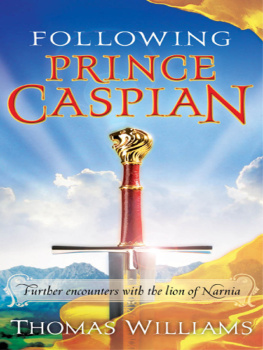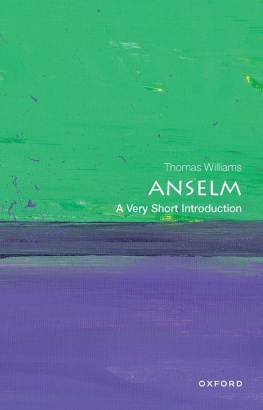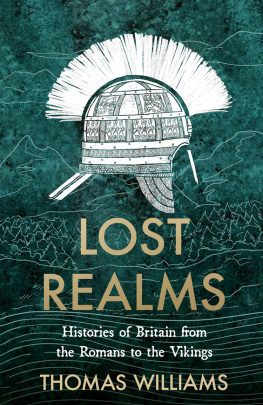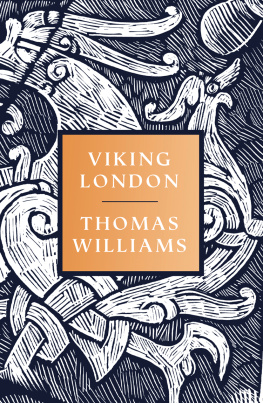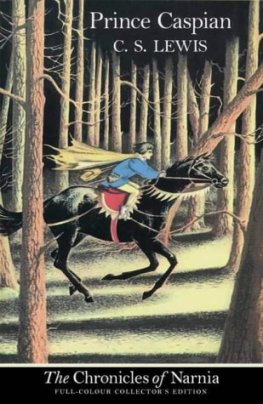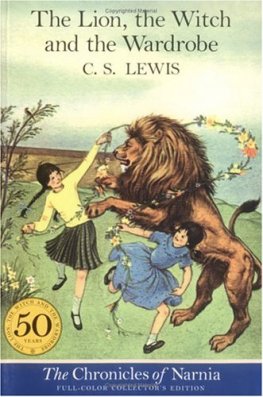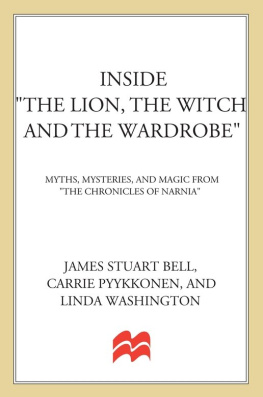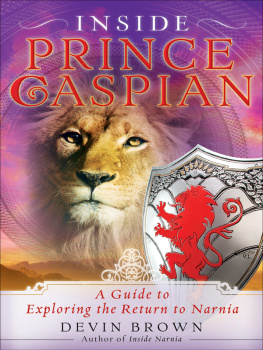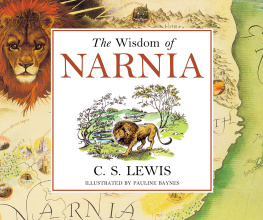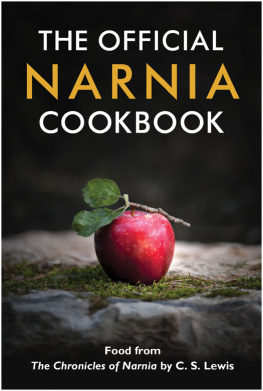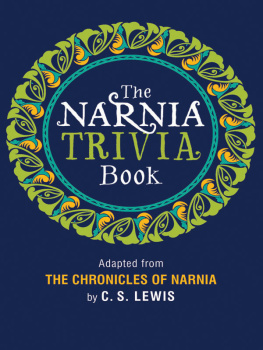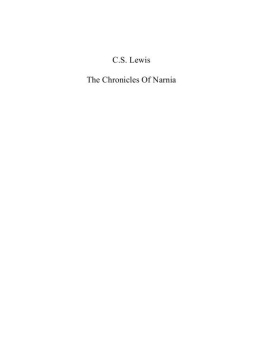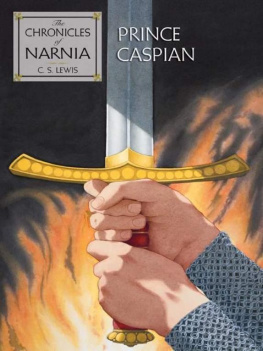
2008 by Thomas M. Williams
All rights reserved. No portion of this book may be reproduced, stored in a retrieval system, or transmitted in any form or by any meanselectronic, mechanical, photocopy, recording, scanning, or otherexcept for brief quotations in critical reviews or articles, without the prior written permission of the publisher.
Published in Nashville, Tennessee, by Thomas Nelson. Thomas Nelson is a registered trademark of Thomas Nelson, Inc.
Thomas Nelson, Inc., titles may be purchased in bulk for educational, business, fund-raising, or sales promotional use. For information, please e-mail SpecialMarkets@ThomasNelson.com.
Scripture quotations are taken from Holy Bible , New Living Translation. 1996. Used by permission of Tyndale House Publishers, Inc., Wheaton, Illinois 60189. All rights reserved.
Library of Congress Cataloging-in-Publication Data available upon request.
ISBN 978-0-8499-1997-8
Printed in the United States of America
08 09 10 11 12 QW 9 8 7 6 5 4 3 2 1
CONTENTS
PRINCE CASPIAN'S
NARNIA
HUNDREDS OF YEARS HAVE PASSED IN Narnia since the days of The Lion, the Witch and the Wardrobe. Foreign invaders from the country of Telmar have taken over the land, ridding it of talking animals, centaurs, fauns, giants, and other nonhuman citizens that formerly filled the mountains and forests.
A new way of looking at the world prevails in Narnia. The Telmarines hate wild, natural things, so they are destroying forests and ruining rivers to build their civilization. They have ushered in a new, enlightened age freed of ancient myths and magic. Its a time of no-nonsense, practical thinking. The Telmarines have zero tolerance for belief in the old magical stories of talking animals, especially the accounts of a Lion called Aslan, Son of the Emperor-over-Sea who created Narnia. Though the old stories are forbidden, a few Narnians remain who have not forgotten them.
The king of the new Narnia is the Telmarine Miraz. He is not the rightful king; he seized the throne after murdering his brotherthe true king and Caspians fatherwhen the prince was an infant. Caspians mother died soon afterward, and the boy has been raised by a nurse whom he loves dearly. He treasures the time when she tucks him in at night and tells him stories of Old Narnia, when animals talked, fauns danced in the woods, dwarfs mined glittering stones and metals from the hearts of the mountains, beautiful dryads danced in the forests, and the great Lion Aslan often appeared.
But when Caspian innocently asks his uncle about the old stories, Miraz angrily tells him that none of them are true and that he must never think about them again. The king banishes the nurse and hires a tutor to train Caspian in the practical things he must know to be king of Narnia.
SHUNNING THE OLD STORIES
Its not too hard to see the resemblance between Caspians Narnia and our world today. A new way of thinking is sweeping our schools, universities, governments, and media. Technology and materialism dominate todays worldview, and the old stories of creation, miracles, and a God who came down and died for us seem out of place. A growing number of people consider religion a superstitious fantasy, neither true nor relevant to real life.
As in the new Narnia, many expressions of belief are forbidden in certain venues today. Public prayer is forbidden in public schools, and even speaking of God is forbidden in many. Sharing ones faith is forbidden in many workplaces. Political candidates are ridiculed for believing in a creator. Christian organizations are banned from many college campuses. Christianity is on the defensive. To take it seriously as a foundation for a credible worldview or adopt it as a way of life is becoming an embarrassment almost everywhere except inside the walls of churches.
Dont you sometimes feel the effect of this thinking? How do you react to words such as sinner or salvation, to terms like Bible believer, faith in God, the power of prayer, or absolute truth? Do you feel uncomfortable, maybe reluctant to take these terms seriously because they seem so quaint and out of place? Maybe the term absolute truth makes you uncomfortable because you doubt whether there is such a thing or, if there is, whether it can be known. If you are a Christian, do you feel embarrassed to express your beliefs outside church settings?
If you experience any of these feelings even to a small degree, as most of us do at times nowadays, its a sign that were living in a time like Caspians Narnia. The old beliefs that once defined our culture are being discouraged or even repressed. The intuitive understanding of basic right and wrong is fast disappearing. We live in an age that largely rejects the old explanations of why we were placed on this planet. The idea that we can have a relationship with a higher power who created us for a glorious destiny is slipping away. Instead, human beings are assumed to have no higher purpose than following our own desires and scratching our own itches.
A NEW WAY OF THINKING
The culture today tells us that the old truths were never really true. Whats true for you may not be true for me, so you and I must find our own truth. Absolute right and wrong are considered repressive, outdated concepts; after all, whats right for one person may be wrong for another. Therefore, the argument goes, others have no right to impose on you their idea of whats right and true. You must decide such things for yourself.
You may be caught up in this way of thinking. Maybe you are now following your own truth. Maybe youve bought into todays mantra that life is meant for pleasure, and youve filled your life to the brim with continual stimulationiPods, online games, movies, concerts, cuisine, TV, drugs, alcohol, sexual encountersso that theres scarcely a free moment when your senses are not bombarded with pleasurable sensations.
Maybe youve bought into the cultural idea that happiness is found in having it all. You work yourself to exhaustion day and night to fill your life with thingsa newer car, a more upscale home, clothing to match your peers, up-to-date electronic devices, golf clubs, ski equipment, snowmobiles, motorbikes, boats...
Maybe youve bought into the idea of finding significance in your career, and you are doing whatever it takes to scramble up the corporate ladder, to build a successful business, or to get to the top of your field so youll be admired and respected.
These are the values that have largely replaced the values of the old stories. Yes, our culture is strikingly like that of Narnia in Prince Caspians day. The old truths are out of favor, discouraged, and sometimes even forbidden. The new order of the day is to live by the rules of a pleasure-saturated, materialistic, self-pleasing culture according to whatever standards seem to work for you. As we will see in the next chapter, this approach didnt work very well in Narnia, and Im afraid it wont work very well for us today.
CASPIAN FLEES
FOR HIS LIFE
SINCE NARNIAS KING MIRAZ HAS NO son of his own, he is content to groom his nephew Caspian as his heir. As the boy grows, Miraz has him trained in sword fighting, archery, hunting, history, law, rhetoric, and other arts all kings should master. Unknown to Miraz, the tutor he hires to teach the prince academic subjects is a firm believer in the old stories. He secretly expands Caspians knowledge of Aslan and the ways of Old Narnia.
But one night, the tutor awakens Caspian and urges him to flee for his life. The queen has just borne a son, and the tutor knows the treacherous king will now kill Caspian in order to clear his sons path to the throne. The young prince escapes, riding south into the night toward the great woods on the border of Archenland.
Next page
